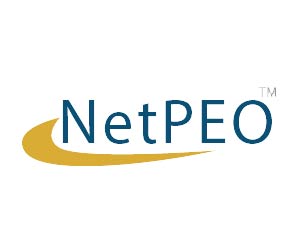Running a business today means dealing with more than just sales, customers, and operations. Employers face a wide range of compliance requirements that change from state to state and industry to industry. From payroll and tax laws to workplace safety and employee benefits, the rules keep evolving.
But here’s the challenge: many small and mid-sized businesses struggle to stay on top of every detail. And when compliance slips, the consequences can be severe.
So, what are some of the consequences of non-compliance? In this guide, we’ll break down the risks, costs, and long-term impact of failing to meet compliance standards—and show you how NetPEO can help protect your business.
What Is Compliance in Business?
Before diving into the consequences, let’s clarify what compliance really means.
Compliance refers to a company’s ability to follow the laws, regulations, standards, and ethical practices relevant to its industry and workforce. These can include:
-
Payroll and Tax Compliance – Correct employee classification, accurate payroll processing, tax filings, and deductions.
-
Labor Law Compliance – Following state and federal labor laws, including overtime, minimum wage, and family leave policies.
-
Workplace Safety Compliance – Adhering to OSHA (Occupational Safety and Health Administration) standards to ensure a safe workplace.
-
HR and Employment Compliance – Ensuring hiring, onboarding, benefits, and termination processes follow legal guidelines.
-
Benefits Compliance – Meeting requirements for health insurance, retirement plans, COBRA, ACA, and other employee benefits.
For many businesses, the web of compliance rules is complex and overwhelming. That’s why so many turn to PEOs (Professional Employer Organizations) like NetPEO for help managing HR and compliance responsibilities.
The High Stakes of Non-Compliance
Now, let’s answer the big question: What are the consequences of non-compliance?
The risks can vary depending on your industry, size, and type of violation, but they typically fall into these major categories:
-
Legal Consequences
-
Financial Penalties
-
Operational Disruption
-
Reputation Damage
-
Loss of Employee Trust
-
Business Growth Barriers
Let’s explore each of these in depth.
1. Legal Consequences of Non-Compliance
One of the most immediate risks of non-compliance is legal trouble. Government agencies are constantly monitoring and auditing businesses to ensure they meet employment laws and tax regulations.
Examples of Legal Risks:
-
Lawsuits from Employees – Wrongful termination, wage disputes, harassment claims, or discrimination cases.
-
Government Investigations – Agencies like the IRS, Department of Labor (DOL), or OSHA can investigate your company.
-
Criminal Charges – In severe cases (such as willful tax evasion or safety negligence), company leaders may face criminal liability.
📌 Case in Point: In 2023, the Department of Labor recovered over $213 million in back wages for employees after investigating wage law violations. Many of those cases started because businesses weren’t aware they were breaking the rules.
Bottom line: Legal non-compliance isn’t just a headache—it can shut down your business.
2. Financial Penalties and Fines
If there’s one consequence that hits business owners the hardest, it’s the financial cost.
Types of Financial Risks:
-
IRS Penalties – Late payroll tax filings or misclassifying employees as contractors can cost tens of thousands of dollars.
-
OSHA Fines – Workplace safety violations can result in fines ranging from $1,000 to $15,000 per incident, or higher for repeated violations.
-
State-Level Penalties – Every state has its own compliance rules for workers’ compensation, unemployment insurance, and paid leave. Missing these can trigger audits and fines.
-
Wage Reimbursements – If employees weren’t properly paid overtime or minimum wage, you could owe years of back pay plus damages.
📌 Example: A California company misclassified workers as independent contractors. After an audit, they faced over $1 million in back wages and penalties.
When compliance slips, the financial consequences can erase years of profit.
3. Operational Disruption
Non-compliance doesn’t just cost money—it disrupts your entire operation.
How Non-Compliance Hurts Operations:
-
Audits and Investigations – Government audits can tie up your team for weeks or months, pulling focus from business growth.
-
Workplace Shutdowns – OSHA has the authority to shut down unsafe worksites until violations are resolved.
-
Increased Turnover – Employees don’t want to work at a company with shady HR practices or unsafe conditions.
-
Loss of Focus – Instead of serving customers, leadership spends valuable time dealing with legal battles and fines.
Think about it: Every hour spent dealing with compliance problems is an hour not spent on innovation, sales, or customer service.
4. Reputational Damage
Your company’s reputation is one of its most valuable assets—and non-compliance can destroy it overnight.
How Reputation Suffers:
-
Bad Press – Local news loves stories about unsafe workplaces, unpaid wages, or labor law violations.
-
Negative Online Reviews – Platforms like Glassdoor make it easy for unhappy employees to share their experiences.
-
Lost Clients – Many clients don’t want to be associated with businesses facing lawsuits or legal troubles.
-
Recruitment Struggles – Top talent won’t join a company with a bad compliance record.
📌 Real-World Example: A national restaurant chain faced widespread criticism after wage theft lawsuits went public. Even years later, many customers avoided the brand.
Reputation is hard to build but easy to lose—and compliance mistakes can make that loss permanent.
5. Loss of Employee Trust and Engagement
Employees want to feel safe, respected, and fairly treated. When compliance fails, that trust disappears.
Employee Impact of Non-Compliance:
-
Low Morale – Workers who feel mistreated (unpaid overtime, unsafe conditions) lose motivation.
-
High Turnover – Non-compliance often leads employees to leave for more reliable employers.
-
Unionization Risk – Frustrated employees may push to unionize, adding more complexity to HR management.
-
Difficulty Recruiting Talent – Word spreads quickly, and potential hires may avoid applying.
Remember: Employees are the backbone of your business. Without compliance, you risk losing your best people—and your competitive edge.
6. Barriers to Business Growth
Finally, non-compliance can stall your company’s growth.
-
Blocked Expansion – Non-compliant companies may be denied business licenses or government contracts.
-
Limited Funding – Investors avoid companies with legal or financial risks.
-
Partnership Challenges – Vendors and partners may cut ties with non-compliant businesses.
-
Increased Costs – Constant fines and lawsuits eat into funds that could be used for scaling.
📌 Example: A tech startup lost a major investor after failing to provide proper HR documentation during due diligence. Their growth stalled for years.
Compliance isn’t just about avoiding risk—it’s about enabling sustainable growth.
Why Non-Compliance Happens
If the consequences are so severe, why do businesses still struggle with compliance?
Here are the most common reasons:
-
Lack of Knowledge – Small business owners often don’t know every federal and state requirement.
-
Limited HR Staff – Many SMBs can’t afford a full HR compliance team.
-
Rapid Growth – Expanding quickly often leads to compliance oversights.
-
Complex Regulations – Rules vary by state, industry, and even city, making compliance a moving target.
-
Outdated Systems – Manual payroll and HR processes are prone to errors.
This is exactly where NetPEO can step in and help.
How NetPEO Helps Businesses Stay Compliant
At NetPEO, we specialize in helping small and mid-sized businesses navigate the complex world of HR and compliance.
Here’s how we protect your company from non-compliance risks:
-
✅ PEO Partnerships – We connect you with the right PEO provider to handle payroll, taxes, benefits, and HR compliance.
-
✅ Payroll Accuracy – Ensure wages, overtime, and taxes are calculated correctly every time.
-
✅ HR Expertise – Access certified HR professionals who stay on top of changing laws.
-
✅ Risk Management – Reduce exposure to lawsuits and government audits.
-
✅ Employee Benefits – Offer Fortune 500-level benefits while staying compliant with ACA and COBRA.
-
✅ Ongoing Support – Our team is always available to guide you through compliance questions.
Simply put: NetPEO gives you peace of mind, so you can focus on growing your business without worrying about hidden compliance risks.
Key Takeaways
-
Non-compliance can lead to legal battles, fines, operational disruption, reputation loss, and employee turnover.
-
The financial costs of non-compliance often exceed the cost of investing in compliance support.
-
Compliance isn’t just about avoiding risk—it’s about building trust and enabling business growth.
-
Partnering with a PEO through NetPEO ensures your business stays compliant without the stress.
Final Thoughts
Non-compliance isn’t something businesses can afford to ignore. Whether it’s payroll errors, tax mistakes, or safety violations, the risks are too high—and the consequences too damaging.
The good news is that you don’t have to navigate compliance alone. With the right partner, you can stay protected, reduce costs, and focus on what really matters: growing your business.
👉 Ready to protect your business from compliance risks?
Contact NetPEO today and let us connect you with the perfect PEO partner. Together, we’ll make compliance simple, stress-free, and cost-effective.



